Our Curriculum
Ardmore Presbyterian Weekday Preschool’s curriculum is based on play.
We believe that many of the developmentally appropriate milestones for preschoolers can be taught through play based activities.
A nurturing and loving atmosphere surrounds activities promoting social, emotional, spiritual, intellectual, and physical growth.
Our classrooms provide a structure that allows children a safe place to make mistakes and learn, while having fun!
ART
-
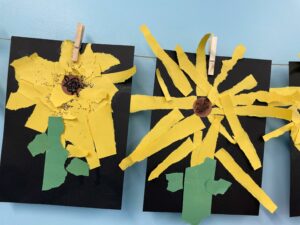 A young child’s first experiences with art materials, are not always for the purpose of making anything specific.
A young child’s first experiences with art materials, are not always for the purpose of making anything specific. -
At an early age, children are simply caught up with manipulating a wide variety of materials as they learn about colors, textures, shapes and lines.
-
It is the process that matters, not the product. We gently guide them occasionally, but want them to feel good about their own creation.
CHRISTIAN EDUCATION
-
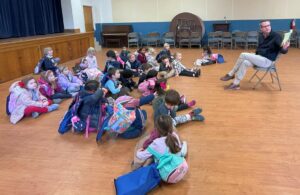 Children learn that God is present at all times and loves them no matter what. We share the stories of God’s love, Jesus’ lessons, and how people of the Bible followed God.
Children learn that God is present at all times and loves them no matter what. We share the stories of God’s love, Jesus’ lessons, and how people of the Bible followed God. -
We develop their self-esteem, and appreciation of others’ faith in an environment filled with love and gentle nurturing.
-
We as parents and teachers, represent God in the lives of our children by our examples.
-
Children have a short weekly time with our pastor, who talks with them about how God is active in our everyday life.
MATH
-
Math activities help children discover mathematical concepts
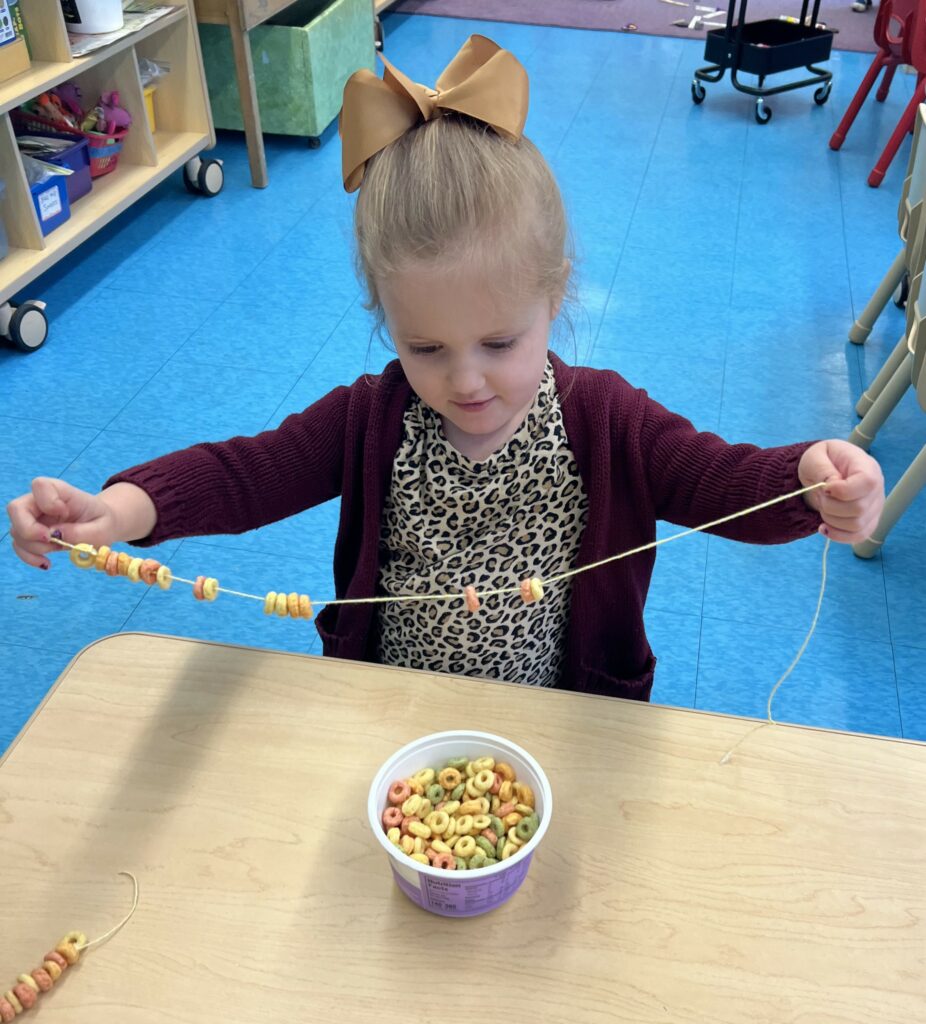
at their own pace as they compare attributes of shapes and sizes of objects, and organize what they investigate. -
Math lessons often involve using manipulatives (physical learning tools, engaging children visually and physically with tangible objects) to help children understand abstract concepts by providing a concrete model.
-
Activities introduce counting, number recognition, one-to-one correspondences, and basic concepts such as time, direction, weight, speed, some/all, more/less, and spatial relationships.
MUSIC
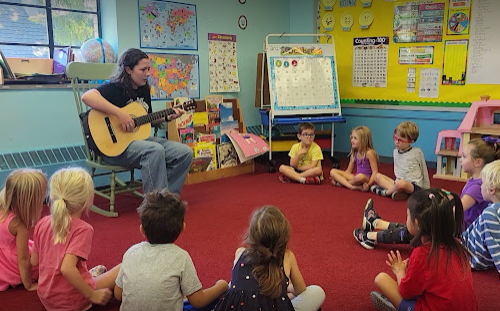
-
Music is one of the most powerful means of expression, and promotes happiness and relaxation.
-
Every child has the capacity to create and enjoy music.
-
Musical skill and appreciation develop over a period of time with activities like listening and singing to live and recorded music in the classroom, and with a music and movement teacher weekly.
PLAY
Play is intrinsic to our program.
-
Not only does a child’s creativity, imagination, and problem-solving thrive, but play builds confidence and positive social interaction, which are the foundations of a happy life.
-
Play allows children to learn by trial and error without concern for making mistakes, and lets their imagination be their guide.
Physical development is a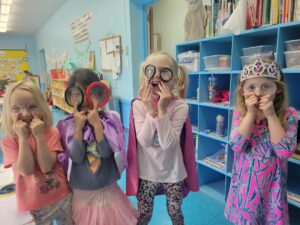 key component in play and learning.
key component in play and learning.
Large muscle development is realized through:
- movement on the playground
- playing in the Rainbow Room
- group games
- dramatic play
- creative movement
Small muscle development is facilitated with manipulatives such as:
- puzzles
- pattern blocks
- matching, sorting and counting materials
Art materials such as crayons, pencils, paint brushes, scissors and Play Doh are great for small motor development and eye-hand coordination.
SCIENCE
-
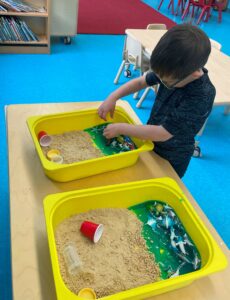 Preschool children are naturally inquisitive scientists asking how and why at any given moment.
Preschool children are naturally inquisitive scientists asking how and why at any given moment. -
In science activities, children explore, wonder, hypothesize, observe, and draw their own conclusions.
-
Encouragement of natural curiosity by taking time to answer questions in uncomplicated, accurate ways or suggesting a way of finding answers works best for preschoolers.
-
Direct involvement with surroundings in nature and the elements of their world give children an excitement and appreciation of the wonders of God’s world.
SOCIALIZATION AND SOCIAL STUDIES
-
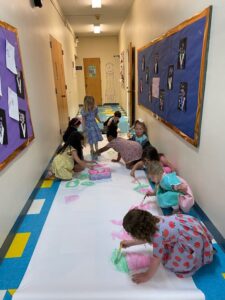 Children who are three to five years old are changing from self-centered beings to increasingly social ones.
Children who are three to five years old are changing from self-centered beings to increasingly social ones. -
Their solitary play and parallel play are gradually replaced with group play.
-
During this time, the size of the play group expands and the amount and duration of cooperative play increases.
-
Play with other children, more than any other activity, helps increase children’s social competence.